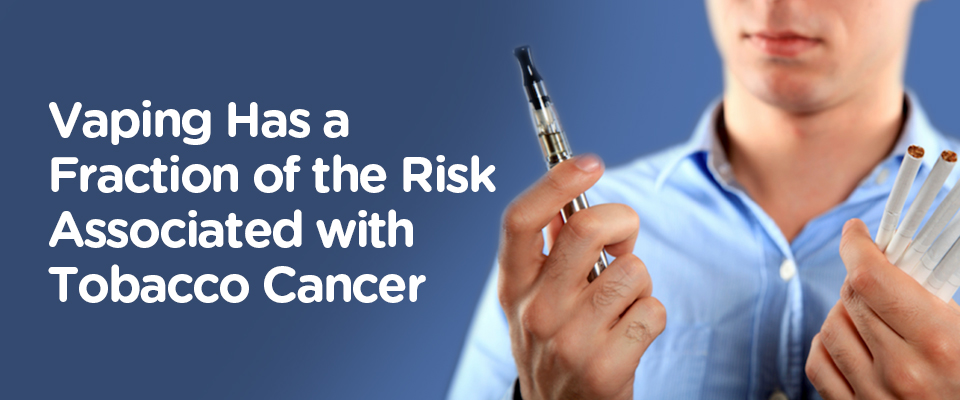A new study has produced yet more good news for anyone who has ditched smoking and switched to vaping – particularly if they’ve done so for health reasons. The study discovered that normal vaping posed less than 1% of the risk of developing cancer, when compared to smoking. ‘Normal vaping’ refers to the use of electronic cigarettes at normal power levels.
The study was conducted by Dr William Stephens at the University of St Andrews in Scotland. The results were published in the Tobacco Control journal. Dr Stephens analysed the emissions that typically came from a cigarette and compared them with those coming from an e-cigarette. The research concluded that the risk of developing cancer through vaping is almost as low as it would be for those who quit smoking with the aid of nicotine replacement therapies. This includes nicotine dispensed via gum and via patches.
The evidence mounts up
We have already seen plenty of evidence that points to vaping as a far safer alternative to smoking. The study did point out that anyone who vapes at a very high power will be exposed to a greater risk factor, but this is not new to the community. This has already been proven, since aldehydes are then produced at much higher levels.
As such, the study does not tell us anything we did not already know or suspect. It merely provides yet more proof that vaping is much better for you than smoking. Some would say it is better not to do either, but if you have been trying and failing to quit smoking and you successfully switch to vaping, your cancer risk drops by 99%. That is an amazing amount, and will no doubt make vapers feel more confident about their choice.
Will the anti-vaping groups pay attention?
This is probably the biggest question. And it is likely one we already know the answer to. Many countries have banned vaping in public places, and that is not about to change anytime soon. The UK is more welcoming to vapers than some countries we could mention, and it is more commonly suggested as an aid to helping people quit smoking.
But since some are already dismissing the research completed at the University of St Andrews, it seems likely we still have an uphill battle to fight to promote vaping as a better alternative to smoking. You cannot get much better than a cancer risk reduction of 99%, as evidenced in this study. Yet those who want to ban vaping and make it harder for people to get hold of supplies will no doubt continue to fight their corner on this.
What is your reaction to this study? Are you pleased to see how much safer electronic cigarettes are compared with tobacco products? Let us know your thoughts below, and tell us why you switched to vaping. Was it because you were hoping to improve your health and reduce the risk of illness, as this study indicates is possible?
